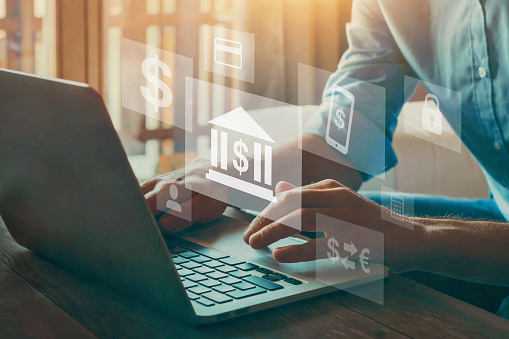Author: Professor Marco Mongiello, Pro Vice-Chancellor, The University of Law Business School
You’d be forgiven for assuming that the global outlook for banking and fintech will be dominated by the usual suspects:
Artificial Intelligence – AI plays an increasingly prominent role in banking and fintech by enabling personalised services, fraud detection, predictive analytics, use of chatbots and robo-advisors.
Blockchain and Cryptocurrency – the secure, decentralised and swift system for financial transactions that blockchain has brought to the fore a few years ago, is now becoming ubiquitous. An increasing number of transactions are recorded through blockchains technology, primarily in the cryptocurrency market.
Digital Banking and fintech – accelerated by COVID-19 pandemic, the adoption of digital banking is a trend that will persist as customers have become accustomed to the convenience and efficiency of digital banking. Moreover, fintech enables access to financial services for previously underserved populations in developing countries or less affluent social groups in more affluent societies. This includes mobile banking services, peer-to-peer lending platforms, and microfinance solutions.
Open Banking – another global trend is the use of open APIs (Application Programming Interfaces) that allow third-party developers to build apps to facilitate customers’ access to financial data and services from banks.
Nonetheless, the challenges posed by these rapid changes are reminders that banking, an industry that by its very nature needs to be conservative, risk averse and solid, wobbles on the unchartered grounds of fast and turbulent innovation, where entrepreneurship instead thrives. The underlying rationales of banking and fast digital innovation are not incompatible but do need solid operations and thought-through decision-making to avoid causing catastrophic collapses.
The recent examples of Silicon Valley Bank, Silvergate, FTX and Wirecard are stark reminders that digital entrepreneurship applied to banking doesn’t just bring to customers the visible transformation of valuable new services, but also dents (perhaps as an unexpected consequence) the rationale itself of the role of banks in the global economy. Moreover, the central banks’ ability to contain the effects of single banks’ defaults is no longer a certainty, as experienced just over a decade ago and more recently. The markets’ sentiments are hardly reassured by the commitments of even the most coveted players, such as the European Central Bank, the Federal Reserve, and the President of the United States himself.
Regulators are lagging behind and their attempts to catch up may cause further seismic shocks to the global banking system. For example, another trend that is emerging is one of artificial intelligence decision-centres (i.e., decentralised offices of banks which take autonomous decisions on behalf of investors) outside the most stringent regulatory environments, enabling banks to operate globally more efficiently and more competitively. And we can expect that regulators will close the gap either abruptly, as it is currently happening in China, where private banks are subject to an escalation of regulatory and monitoring restrictions, or more gradually as it is happening in Europe and in the US.
The questions we face, as individual or trade customers of our high street banks, as direct investors or clients of managed funds, are whether banking will become more user-friendly yet, for our daily use but riskier, too, or is it simply becoming more efficient, transparent and also safer.
I’m afraid that the answer is by no means an obvious one. Therefore, caution, level-headed decision- making and critical thinking have never been as important as these days. Whether you are looking after your family savings or growing your pension reserve, the imperative is that you keep updated about the providers of the financial services you rely upon as well as about the general regulations that apply to your financial transactions. This is where, for example, you need to be familiar with your rights in case of cyber fraud, as well as learning how to minimise the risk of becoming a victim thereof. Also, taking additional steps to evaluate the credibility, solidity and reliability of the online provider of that app that was recommended by a trusted friend, may prove a very good move.
Similarly, whether you are the CFO of a medium or large company, or are a sole trader wrestling with your own business’s finances, you need to reflect on what you really want from your bank in the first place. That is before you started to be swayed by the whirlpool of offers of ‘opportunities’ to multiply your financial investments. Chances are that your initial approach to your bank was dictated by either a need for financing your working capital, as per your budget and strategic plans, or to find a safe place for your temporarily idle liquidity. Perhaps you were also after some basic treasury services such as swift payments and debt collection. Maybe some other financial services closely related to your business operations, e.g. factoring. The advice is to give very careful consideration to services that are more remote from your business, because the trend for the next years is that more and more of those will be offered to you. But many new services will disappoint those who, sadly, cannot afford financial mishaps as they look to run and grow their business.







